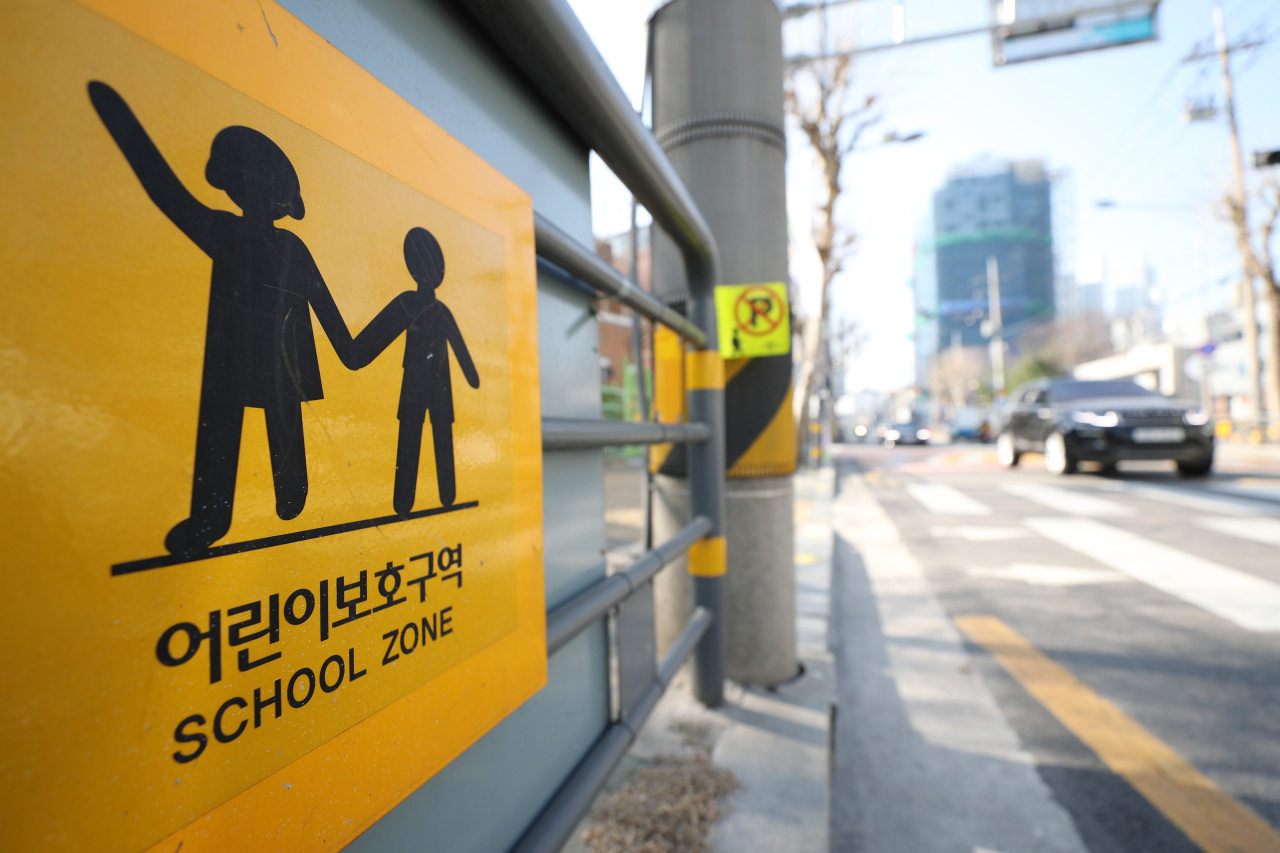 |
A school zone in South Korea (Yonhap) |
Spooked Korean drivers are seeking navigation apps that can bypass school zones and are buying insurance with greater coverage, after the passage of a contentious child safety bill that imposes harsher punishments for accidents.
SK Telecom said April 1 it has completed the development of a school zone detour function on its navigation app Tmap, in response to rising demand.
Under a new law, widely known as the “Min-sik law,” effectuated on March 25, a driver who injures a child under 13 faces a fine of at least 5 million won ($4,100). The death of a child can lead to at least three years and up to life in prison.
The revised law passed the National Assembly in December 2019 after 9-year-old Min-sik was killed by a car driving at 23.6 kilometers per hour in front of his elementary school in Asan, South Chungcheong Province, in September 2019. While the boy’s story received wide public support for the reinforcement of safety laws, the new stipulations have prompted wide debate for what critics have called excessive punishment compared to other penalties imposed on “intentional” crimes.
As a result, demand from drivers for assistance near and in school zones has been rising, according to telecom industry sources.
“SKT is currently testing the function on Tmap and the update will take place this month or next at the latest to meet the growing demand,” a company official said.
Kakao’s navigation app Kakao Navi, the No. 2 player in the industry, is providing a voice alert function when entering school zones.
“In school zones, Kakao Navi will alert drivers by saying ‘You are in a school zone. Drive slowly,’” a Kakao official said. “Kakao is currently reviewing whether to add a school zone detour function.”
Also, KT’s One Navi is equipped with a voice alert function that alerts drivers twice before entering a school zone.
Along with navigation app providers boosting their functions, insurance companies have bolstered their insurance policies for anxious drivers wary of possible worst-case scenarios in school zones.
“In the first week since the Min-sik law took effect as of March 25, MG Non-life Insurance witnessed a 50 percent surge in new clients buying auto insurance compared to the previous week,” a company official said.
MG Insurance has recently upgraded the coverage of its Joy Driver Insurance, expanding the coverage amount for attorney fees to 10 million won from 5 million won, and that of car accident fines to 50 million won from 30 million won. Another premium policy raised the amount to 20 million won and 100 million won, respectively.
KB Insurance raised the coverage amount for car accident fines to 30 million won from 20 million won.
Samsung Fire and Marine Insurance, Hyundai Marine and Fire Insurance, DB Insurance and Meritz Fire and Marine Insurance are also offering special contracts for car accidents in school zones, raising the coverage amount to 30 million won.
By Kim Byung-wook (
kbw@heraldcorp.com)








![[Today’s K-pop] Blackpink’s Jennie, Lisa invited to Coachella as solo acts](http://res.heraldm.com/phpwas/restmb_idxmake.php?idx=644&simg=/content/image/2024/11/21/20241121050099_0.jpg)